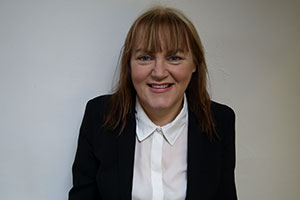Article By Tamara Habberley, Senior VAT Consultant, The VAT People
Small business owners and self-employed individuals very often struggle to understand the complexities of VAT - and for good reason. Even the basic rules can seem like a minefield to those who are not well-informed about this complex area. While even the basics can be confusing, there are also complex additional rules that must be adhered to - otherwise, you may be at risk of flouting VAT regulations and therefore incurring penalties.
Here, we explore the most common VAT issues faced by plumbing professionals.
VAT for self-employed plumbers
Initially, self-employed individuals are required to register a business for VAT in the event that its taxable turnover exceeds HMRC’s limit, currently £85,000, on a rolling 12 months basis. Any plumber earning less than £85,000 per year does not need to register for VAT. This means that if you are operating a small enterprise, it is likely that your products and services will be worth less to you if you are VAT registered if you are unable to add VAT on top of the amount that you currently charge.
Those who are operating above the £85,000 threshold will need to complete a VAT return usually on a quarterly basis, although annual or monthly returns can be an option in some cases. The return informs HMRC exactly how much VAT you have charged to your customers, or been paid, dependant on if you account for VAT on an invoice accrual or cash basis. This means that Plumbers need to monitor their turnover on a rolling 12-month basis to ensure they register for VAT once the turnover exceeds the VAT registration threshold.
Businesses that can add VAT on to the amount that they charge their customers and purchase of goods or services plus VAT to make a supply to their customers may find that they are better off registering for VAT as they will benefit from being able to claim VAT on their costs.
to claim VAT on their costs.
In general, the majority of work carried out by plumbers is subject to standard rated VAT. However, the amount that is due is dependent on a number of factors including the type of property being worked on and where it is located. As a few examples of where UK standard rate VAT does not apply, plumbing work carried out as part of the construction of new dwellings is zero rate from VAT and work on properties overseas is considered outside the scope of UK VAT but may be liable to VAT in the country where the work is carried out.
Mistakes made by plumbers
Plumbers and other self-employed individuals can often make mistakes when it comes to calculating VAT, which can prove costly and time-consuming to resolve. Many plumbers fail to register for VAT by the correct date, usually because they are reliant on an accountant to tell them if they have exceeded or stayed below the HMRC threshold. This is often too late as the accountant may not have the information to prepare the accounts until well after the plumber has exceeded the VAT registration threshold.
Another common failure arises in cases where plumbing professionals do not fully understand the types of work that qualifies as zero or reduced-rate VAT. Very often, we see self-employed individuals charge the same rate of VAT on all supplies irrespective of the actual liability of the work.
This type of error in understanding makes it possible that a HMRC investigation would uncover VAT being under declared where, for example, the supplies are reduced rate for VAT but zero rate has been applied, while from a commercial perspective, over charging VAT at the standard rate on reduced or zero rate work makes the plumber less competitive compared to other plumbing professionals who understand the correct rate of VAT to charge. In addition, failure to understand which rates to use can mean that customers may incur VAT they are unable to claim back. In some cases, this can lead to costly disputes and loss of goodwill with customers.
Failing to use VAT reliefs
In cases where a self-employed plumber is providing services with materials under a single contract to a customer involved in the construction of a new dwelling, the supply is subject to the zero rate.
If the work being carried out is on the conversion of a commercial property into a residential property, or to amend the number of self-contained dwellings within a property, the work qualifies for the reduced rate of VAT.
Additional reliefs are also available including work to renovate empty homes that have been vacant for more than two years and to construct relevant residential properties (RRP), including student accommodation but in the case of RRP’s only where the plumber is making a supply to the entity that will use the property for a relevant residential purpose.
VAT is an extremely complicated aspect of business operations, particularly for those who are self-employed and may not know where to turn when it comes to educating themselves in this area. All businesses are advised to have a degree of knowledge relating to VAT in order to prevent any potential issues relating to HMRC. Information can be gained from HMRC’s National VAT advice line, your accountant or The VAT People Limited have a free VAT helpline and are always happy to have an initial discussion.

Add new comment